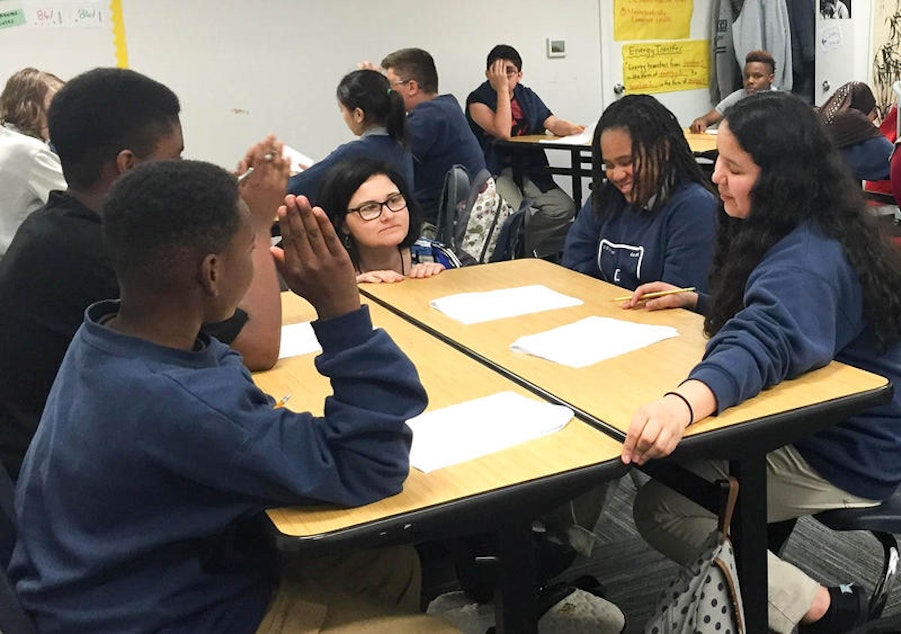Charter schools are legal, can keep getting state funding, Washington state Supreme Court rules

The Washington Supreme Court has upheld public funding for charter schools.
In a split decision issued Thursday, the court struck down a portion of the law that deals with collective bargaining rights. But it affirmed the rest of a decision by a King County Superior Court judge.
"The remainder of the Charter School Act is constitutional on its face," said the lead opinion, written by Justice Mary Yu.
Washington state voters approved charter schools in 2012, after rejecting them three times. After the Supreme Court struck down that law, the Legislature acted in 2016 on a replacement law, which was at issue in this case.
Teacher unions and other groups, like El Centra de la Raza, sued in King County Superior Court over the new law.
The opponents argued that public money shouldn’t go to schools over which voters have no control – charters answer to unelected boards, not elected school boards. They said public schools were under-funder already, and that money was being diverted from them.
Sponsored
Advocates and attorneys for the state argued that the new law does satisfy the state Constitution and that charter school opponents are trying to undo the will of voters.
Charter schools are publicly funded but privately run – each charter school is effectively its own school district.
The state’s 13th charter school is set to open next fall in Skyway.
In Thursday's ruling, only four Supreme Court justices signed on to the lead opinion. But the dissenters were split among three opinions.
Yu said charter schools don't operate identically to public schools, but that doesn't mean they're unconstitutional.
She wrote that one section of the Charter School Act that restricted school employee's collective bargaining rights violated the state Constitution.
But she said that that portion could be severed from the act while the rest remained intact.
In one of the dissents, Justice Barbara Madsen said that the Charter School Act included too many exceptions on public control of charter schools.
"The Act creates a parallel public school system that provides a general education, serves all students, and uses public funds, but lacks local voter control or oversight," Madsen wrote.
You can read the ruling below or here.




